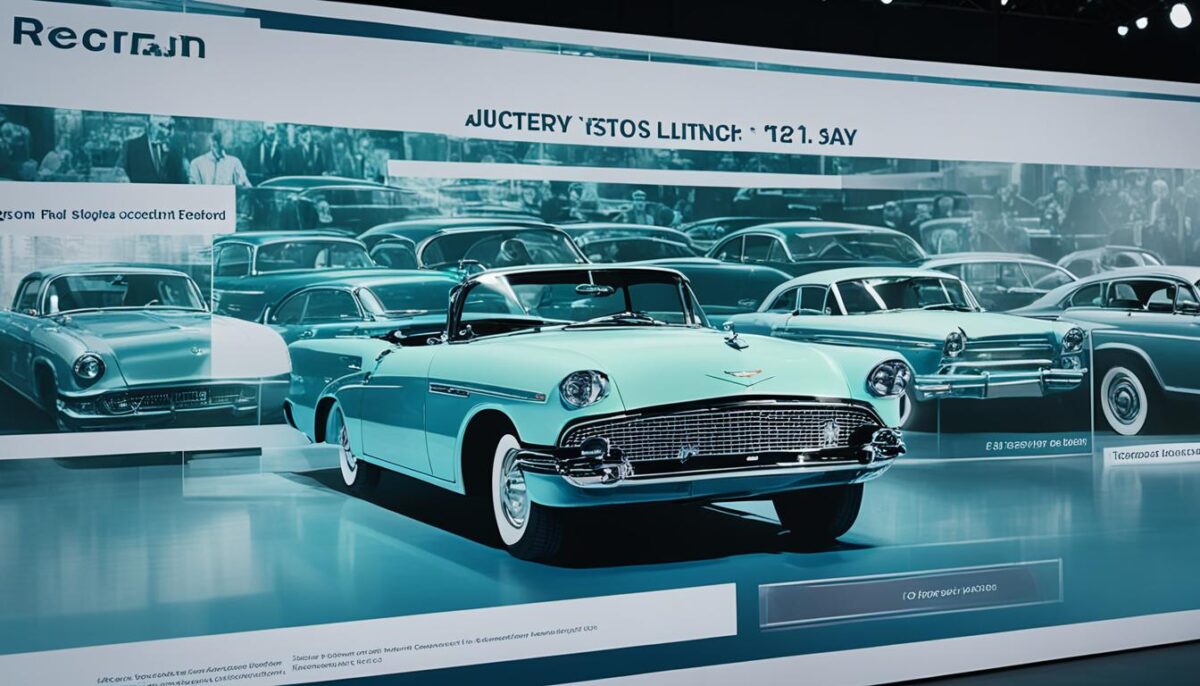
In the dynamic world of car auctions, understanding the importance of car history reports is paramount. These comprehensive documents can provide us with invaluable insights, empowering us to make informed decisions and navigate the auction landscape with confidence. By unveiling the hidden stories behind each vehicle, car history reports offer a crucial window into a car’s past, helping us identify potential issues, assess the true value, and ultimately, secure a smart purchase.
Navigating the competitive world of car auctions can be a thrilling, yet daunting experience. However, by leveraging the wealth of information contained in car history reports, we can gain a distinct advantage. These reports shed light on a vehicle’s accident history, mileage, service records, and any outstanding loans or liens, giving us a comprehensive understanding of its condition and background.
Armed with this knowledge, we can make more informed decisions, avoiding potential pitfalls and ensuring that the cars we purchase at auction are truly worth the investment. Car history reports empower us to separate fact from fiction, distinguishing between vehicles that are genuinely well-maintained and those that may harbor hidden issues, ultimately allowing us to secure the best possible deal.
Unveiling the Secrets: Why Car History Reports Matter
When it comes to navigating the world of car auctions, one essential tool stands out above the rest – the car history report. These detailed documents offer a treasure trove of information, shedding light on a vehicle’s past and empowering us to make informed decisions.
Empowering Informed Decisions
A comprehensive car history report can reveal invaluable insights about a vehicle’s maintenance records, accident history, and potential issues. By carefully examining these reports, we can uncover the true condition of a car, allowing us to negotiate better prices and ensure we’re investing in a reliable, well-maintained asset.
Separating Fact from Fiction
In the dynamic world of car auctions, it’s crucial to separate fact from fiction. Car history reports act as a trusted guide, cutting through the clutter of marketing claims and providing us with the objective data we need to make sound purchasing choices. Armed with this knowledge, we can confidently assess a car’s true value and make decisions that align with our needs and budget.
Understanding the importance of car history reports, what they can reveal about a vehicle’s history, and how they can empower our research and decision-making process is the key to navigating the car auction landscape with confidence and success.
“Car history reports are the bedrock of informed decision-making in the world of car auctions. They provide the clarity and transparency we need to make the best choices for our needs and budget.”
Car Auctions History: A Comprehensive Glimpse
The captivating history of car auctions unveils a remarkable evolution, from humble beginnings to the dynamic, global industry we know today. By exploring this journey, we gain invaluable insights that empower us to make more informed decisions when buying a car at an auction.
The origins of car auctions can be traced back to the early 20th century, when the automobile industry was still in its infancy. As the number of car owners grew, so did the need for a centralized marketplace where buyers and sellers could convene. This gave rise to the first car auctions, which were often held in small town squares or rural settings, catering to a local audience.
Over time, the car auction industry underwent a remarkable transformation, expanding beyond its regional roots. The advent of new technologies, such as online bidding platforms, revolutionized the way these events were conducted, making them accessible to a broader, international audience. Today, car auctions have become global phenomena, drawing in enthusiasts, collectors, and dealers from around the world, all united by their passion for the automobile.
Understanding the history of car auctions provides valuable context for navigating the current landscape. By tracing the evolution of this industry, we can better comprehend the factors that shape the auction process, from the rise of specialized auction houses to the increasing importance of vehicle history reports in the decision-making process.
“The car auction industry has come a long way from its humble beginnings, evolving into a dynamic global marketplace that caters to a diverse array of automotive enthusiasts and professionals. This rich history is a testament to the enduring allure of the automobile and the power of innovation to transform entire industries.”

As we delve deeper into the history of car auctions, we uncover a tapestry of stories that shed light on the industry’s transformation. From the early days of local, community-driven events to the modern, tech-driven global marketplace, the evolution of car auctions has been a captivating journey, one that continues to shape the way we experience and interact with the automotive world.
Navigating the Auction Landscape Confidently
With the insights gleaned from car history reports and a deeper understanding of the car auctions history, we can now approach the auction landscape with confidence. By carefully evaluating each vehicle, cross-referencing the information in the history reports, and negotiating skillfully, we can secure the best possible deal and minimize the risks associated with auction purchases. This comprehensive approach to the auction process empowers us to make smart, well-informed decisions, ultimately leading to a successful and rewarding car-buying experience.
When it comes to tips for buying cars at auction, thorough research and preparation are key. We must thoroughly inspect each vehicle, paying close attention to its condition and history, as revealed by the car history reports. This allows us to accurately assess the true value of the vehicle and identify any potential issues or hidden problems. Additionally, by understanding the negotiating tactics commonly used at car auctions, we can navigate the bidding process with confidence, securing the best possible price without compromising on quality.
By avoiding common auction pitfalls, such as emotional decision-making or overlooking crucial details, we can navigate the auction landscape with a clear, strategic mindset. Our ability to evaluate cars at auction objectively, combined with our negotiation skills, empowers us to make sound choices that align with our needs and budget. This holistic approach ensures that our car-buying experience at the auction is not only successful but also satisfying, as we drive away with a vehicle that truly meets our expectations.
